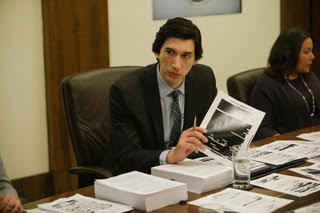Cameron Magusic, Catalyst music/film + culture co-editor
Barack Obama’s two-term Democrat presidency was laudable in many respects: most notably, the Affordable Care Act provided a semblance of the public healthcare safety net that we in Australia enjoy; his fiscal policy in response to the Global Financial Crisis salvaged and reconstructed a foundering economy; and he oversaw a generally scandal-free administration and Cabinet, apart from the time Obama himself wore a tan suit, in sharp contrast to the current mob.
But, in other respects, there is much to be critical of: Wall Street’s capture of his administration almost from the moment of his 2008 election victory; his national security framework, particularly drone warfare and the Justice Department’s responses to Julian Assange and Edward Snowden; and much more besides, including but not limited to his recent suggestion that cancel culture be cancelled.
It is Barack Obama’s national security framework in his two terms as president of the United States of America that is the subject of The Report, a feature-length film due to hit select cinemas around Australia soon, and then Amazon Prime at the end of the month.
Based on a Vanity Fair article about the US Senate Select Committee on Intelligence’s Study of the Central Intelligence Agency’s (CIA) Detention and Interrogation Program, the film’s hero is Dan Jones (Adam Driver), a committee staff member who has been commissioned by Democrat Senator Dianne Feinstein (Annette Bening) to lead an investigation into the CIA’s use of torture during the invasion of Iraq after the 9/11 attacks.
The film covers the investigative work Jones undertook over five years and includes flashbacks to 2002 and 2003, when The Report intimates that something of a tussle for power between the CIA and the Federal Bureau of Investigation (FBI) led the CIA to engage two former US Air Force psychologists, Dr James Mitchell (Douglas Hodge) and Bruce Jessen (T. Ryder Smith) to devise what the Bush administration euphemised as ‘enhanced interrogation techniques’ or what most people would call torture.
It should be noted that the torture scenes themselves are fairly graphic. It’s also worth noting how Eigyll Bryld’s cinematography filters flashback scenes with a kind of green haze, similar to and reminiscent of the Mexico scenes in television series Breaking Bad, that for me represent the ethical quagmire US decision-makers placed themselves in at the time and struggled to get out of.
Once Jones finishes the report, which ends up weighing in around 7,000 pages, the film moves through to giving the audience an understanding of what scholar Andrew Chadwick might describe as the CIA’s and even the White House’s boundary-drawing powers—that is, the ability of those institutions to “seal off” their in-house practices from those who wish to influence and critique these practices. In other words, we see the Democrat Feinstein clash with the Democrat White House in the form of Denis McDonagh (Jon Hamm), Obama’s chief of staff, and a former senator whom, the film tells us in the opening sequence, Jones approached for work in the early 2000s. The Feinstein-White House conflict centres on how much information should be made available in its public release and involves Obama-appointed CIA director John Brennan (Ted Levine) trying to limit how much information American taxpayers know about his organisation.
But, it is not just Democrats who appear under the microscope. The flashback scenes feature Dick Cheney, George W. Bush’s vice-president in archival TV news footage in the days following 9/11 and John Yoo, who worked in the Bush White House’s Office of Legal Counsel and who helped with providing the legal justification for the invasion and then the torture of al-Qaeda prisoners. Those who are interested in how Cheney and Yoo (and, to an extent, Fox News), and not Bush himself, facilitated this quagmire for the US that has ramifications for today, should watch Vice (2018) and recent television series The Loudest Voice. It’s not surprising that in this era of Bush Republican zombies (e.g. John Bolton and William Barr) that John Yoo has appeared on Fox News in recent times to comment on the Democrats’ impeachment inquiry into President Donald Trump. That surely means he is next in line for a job in the Justice Department. Even Bob Mueller, most recently the special counsel for the Justice Department’s investigation into the Trump campaign’s alleged collusion with the Russian government, gets a mention as FBI director at the time of the invasion.
In all, The Report is an outstanding production that reminds us to never buy too deeply into a politician’s vision, whether they are a populist or an anti-populist. If it’s true that politicians campaign in poetry and govern in prose, then that prose, no matter the political party the writer belongs to, will seldom flow from one chapter to the next (let alone from one paragraph to the next) and is always bound to disappoint.
The Report
In Australian cinemas nationally NOVEMBER 14, 2019, distributed in Australia by Transmission Films
From NOVEMBER 29, 2019 on Amazon Prime
Run time: 120 minutes I Classification: CTC
Written & Directed by Scott Z. Burns
Starring: Adam Driver, Annette Bening, Jon Hamm, Maura Tierney and Michael C. Hall


